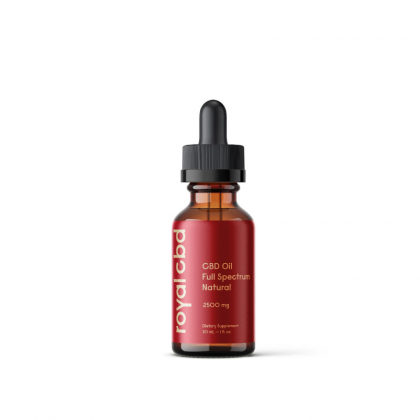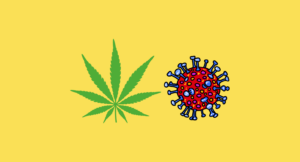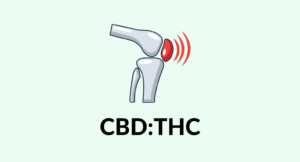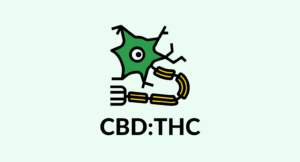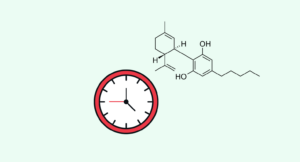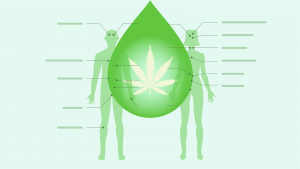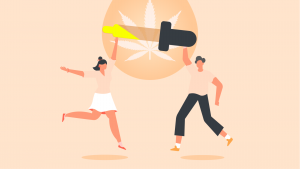| Total CBD: | 500 – 2500 mg |
| Potency: | 16.6 - 83.3 mg/mL |
| Cost per mg CBD: | $0.12 – $0.18 |
| Extract Type: | Full-spectrum |
| THC Content: | <0.3% |
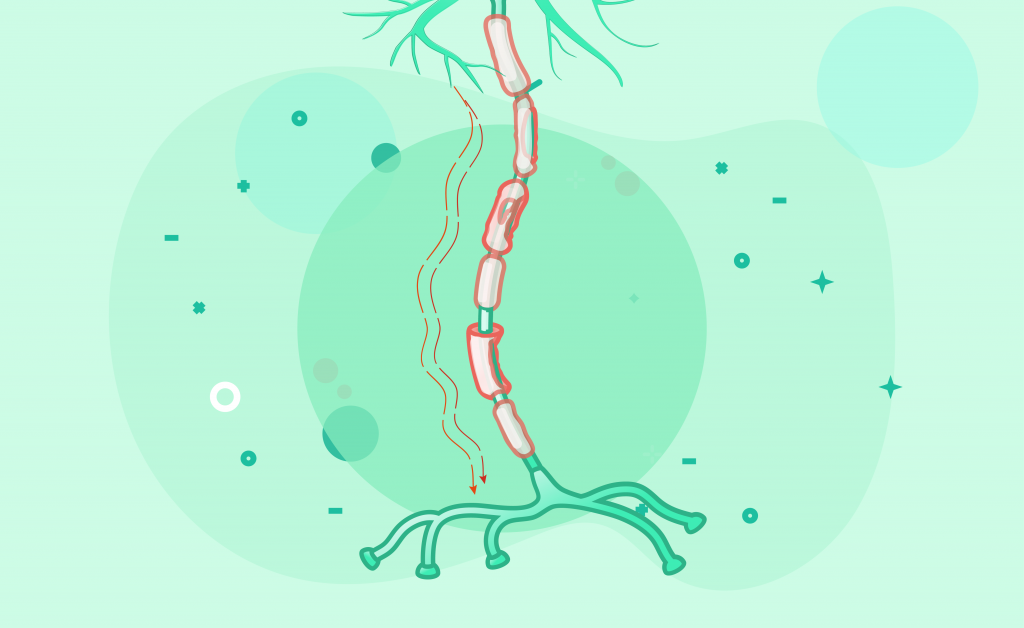
Evidence based
CBD for ALS Patients: Effectiveness, Dosage, & How to Use
Amyotrophic lateral sclerosis (ALS) and CBD — how it works, how to get started, how to dose effectively, and what the current research says.
Amyotrophic lateral sclerosis (ALS) is a progressive neurodegenerative disorder affecting the nerves responsible for muscle control.
Consequently, those affected are left unable to move, talk, and, eventually, breathe.
Stephen Hawking had the condition for most of his life but ultimately passed away at the age of 76.
No cure exists for this condition.
There are medications available that may slow neuronal cell death and improve daily functioning. But the majority of treatment is purely supportive — addressing significant symptoms and providing increased levels of support as those affected lose their ability to walk, talk, and take care of themselves.
Rapidly emerging evidence is suggesting cannabinoids such as CBD and THC may reduce neurological and oxidative damage associated with ALS.
Here, we’ll explore the potential use of CBD in ALS and offer some insight into how you can get the most out of your CBD supplementation.
Summary: Using CBD for ALS
CBD may be useful for a range of other neurodegenerative disorders, including Alzheimer’s disease [1], Parkinson’s disease [2], and multiple sclerosis [3]. Current CBD research related to these conditions is limited, but promising enough to be looked into further.
These conditions are independent of each other but have similar underlying mechanisms.
They all involve some degree of inflammation and oxidative damage in the brain that either causes the breakdown of nerves directly or serves as sustaining factors for the condition.
CBD produces well-known anti-inflammatory, antispasmodic, neuroprotective, and antioxidant effects within the body. It’s through these effects that CBD is, therefore, thought to be useful for a spectrum of neurological disorders — including ALS.
However, aside from a clinical report on spasticity [10], there are unfortunately no clinical trials involving the use of CBD for ALS to confirm these effects conclusively. Therefore, all we have to go off at the moment are case studies, animal studies, in vitro research, and correlation studies.
A review of CBD and ALS was recently published [4] calling for more research in this area.
The study highlighted a list of hypothetical benefits CBD is believed to offer ALS patients, including:
- Pain relief
- Muscle relaxation
- Bronchodilation
- Saliva reduction
- Appetite stimulation
- Sleep induction
- Antioxidant support
- Inhibition of inflammation in the brain
Tips to Getting the Most Out of Your CBD
- Look for full-spectrum CBD extracts. This is because other cannabinoids in the plant have also shown benefit toward neuroinflammation and side-effects of the condition.
- Always choose high-quality CBD products. This is because any contaminants in poor-quality CBD products can cause new problems or possibly make ALS progress even faster.
- Use the CBD consistently. This is because any benefits from CBD regarding ALS will likely take several weeks to develop. Be patient and persistent with CBD supplementation.
- Use CBD alongside other treatments, not all by itself. This is because ALS is a complex disorder involving many different factors. Therefore, it’s wise to use multiple forms of treatment to get the best results possible.
- Speak with your doctor before using CBD alongside other ALS medications. This is because some medications may interact negatively with CBD or the other cannabinoids in the bottle. Your doctor should continue monitoring your liver enzymes due to the standard ALS treatments.
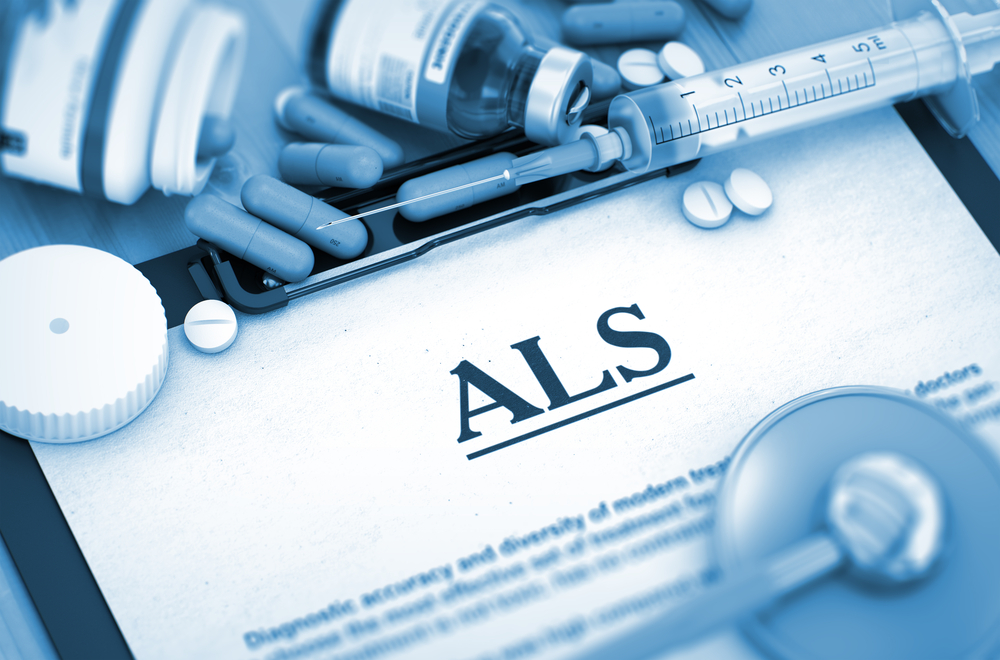
What is ALS?
Amyotrophic lateral sclerosis, or ALS, is also referred to as Lou Gehrig’s Disease because of the famous baseball player who was forced to retire from the sport in 1939 after being diagnosed with the condition.
The disease involves gradual muscle paralysis as the neurons controlling the muscles break down. We each have millions of specialized nerve cells — called motor neurons — tasked with transmitting messages from the brain to the muscles and back again.
Eventually, as these motor neurons are destroyed, those affected are no longer able to walk, talk, eat, or drink. The disease ultimately becomes fatal when the motor neurons controlling the lungs fail.
Symptoms of ALS
- Tripping
- Dropping things
- Slurred speech
- Difficulty swallowing
- Weight loss
- Decreased muscle tone
- Shortness of breath
- Increased or decreased reflexes
- Uncontrollable periods of laughing or crying
- Feeling weak
- Fatigue
- Muscle cramping or twitching
- Muscle stiffness or rigidity
- Poor concentration
- Mood changes
There Are Two Different Types of ALS
1. Sporadic ALS
This form of ALS can affect anybody — regardless of their gender, ethnicity, or age. However, it is more common in men, caucasian people, and persons older than 60 years, with peak onset around 58 to 63 years.
2. Familial ALS
Familial ALS is an inherited form of the disease. It accounts for 5% to 10% of cases. Peak age at onset is 47 to 52 years.
Another Manifestation of ALS: Bulbar ALS
Bulbar ALS refers to the starting point for the neurons affected. People with both familial or sporadic ALS can have the bulbar form of ALS. With this type, the motor neurons in the corticobulbar region of the brainstem are affected first. Therefore, the muscles in the face, neck, and head to become paralyzed before other areas of the body. This is as opposed to limb onset ALS or respiratory onset ALS that begin in the limbs or diaphragm, respectively.
What Causes ALS?
The exact cause is unknown, but there are a few theories for contributing factors for the disease, including:
- Environmental factors, such as tobacco use and formaldehyde exposure
- Heavy metal exposure
- Genetic predisposition, such as superoxide dismutase (SOD1) mutation
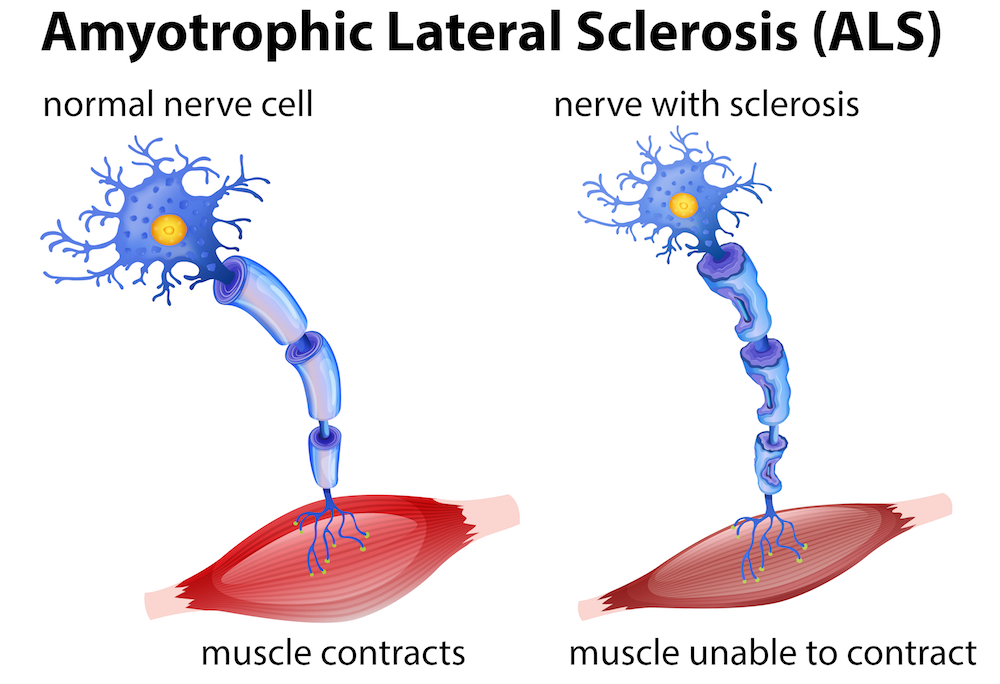
Common Medications for ALS
There is no cure for ALS but there are a few treatments available, such as FDA-approved riluzole and edaravone. Riluzole, a glutamatergic neurotransmission inhibitor, does not provide relief from the symptoms of ALS, but it can extend life expectancy by two to three months.
Edaravone, an antioxidant drug, can slow the decline of daily functions and halt the progression of ALS. CBD interacts with some medications, so always check with your doctor before using it.
Other treatments for ALS include:
- Physical therapy
- Occupational therapy
- Rehabilitation
- Anti-depressants (fluoxetine, sertraline, citalopram)
- Anxiolytics (alprazolam, diazepam, lorazepam)
- Pain relievers (acetaminophen, asprin, ibuprofen)
Guide to Using CBD for ALS
It’s clear that more research is needed to investigate the effects of CBD on ALS in human subjects. However, the research we do have is very promising.
CBD and many of the other cannabinoids, including delta 9 THC and CBG, have been shown to offer significant benefits toward many of the uncomfortable symptoms involved with the condition. Therefore, they have been implicated as a potentially effective adjunct treatment for a series of other, related neurodegenerative disorders.
Both CBD and THC could offer support for the condition. Most of the case studies showing improvements in lifespan and symptoms were using marijuana containing both THC and CBD.
Therefore, we recommend opting for a full-spectrum CBD oil rather than a purified CBD extract with all other cannabinoids and terpenes removed. But depending on where you live, you may or may not have access to CBD products that contain THC in concentrations higher than about 0.3%.
In some places, patients with ALS can apply through a medical marijuana program to receive oils, tinctures, concentrates, or raw cannabis buds that contain high levels of both CBD and THC. The current research to date suggests this is the best option for ALS sufferers.
However, if you’re unable to get any hemp or marijuana products that contain THC, that’s okay. CBD is still likely to be effective for this condition and is generally better for relieving muscle tremors, insomnia, and anxiety than products containing THC.
However, as with any neurodegenerative disorder, it’s wise to speak with your physician before trying CBD or marijuana products for ALS symptoms because, in rare cases, CBD oils may have a negative interaction with other medication you might be taking, and you may also require liver enzyme monitoring . Therefore, it’s better to ask your doctor before assuming it’s 100% safe.
What the Research Says
Unfortunately, there are no clinical studies investigating the effects of CBD for ALS sufferers, despite years of case studies and promising research on related neurological disorders. However, there are a lot of case studies showing positive anecdotal impacts with both legal and illegal cannabis and CBD use [5].
Additionally, there is a growing body of evidence to suggest that THC is also beneficial for ALS.
An animal study published in 2004 investigated the role of THC — the primary psychoactive cannabinoid in the cannabis plant — on mice with ALS to measure any changes [6]. The results of this study reported that the mice who were given THC had significantly less severity with their symptoms than mice not given the THC treatments.
Other studies have found that THC protects the motor neurons in the spinal cord [8], which are critically involved with the development of ALS.
THC has also been shown to be “extremely effective” at reducing oxidative damage induced by a known neurotoxic oxidative compound known as tert-butyl hydroperoxide [9].

What’s the Recommended Dose of CBD?
Because there are no good clinical trials involving CBD for ALS, there are no specific dosages identified nor characteristic results to be expected. However, studies involving CBD and other neurodegenerative disorders often report that high dosages are needed to receive benefits. Therefore, it’s likely to assume that the dose for ALS is also higher than average.
We recommend starting with a low dose and building up gradually by adding 2 mg to 5 mg of CBD each day.
Once symptoms are alleviated, you’ve found the right dose. According to case reports, CBD can relieve symptoms such as insomnia, pain, and muscle tremors almost immediately, while the longevity-enhancing effects of the compound would take much longer and won’t be as noticeable. Further research would be needed to confirm these kinds of effects.
Therefore, for best results, it’s recommended that you aim for the high-strength dose of CBD, and take this dose consistently over the long term.
However, always consult with your doctor before taking CBD for ALS and always take your routine prescriptions as directed, never stop on your own.
Recommended strength for ALS: high strength
CBD Dosage Calculator
Key Takeaways: CBD For ALS
The interaction between CBD and ALS is limited to animal studies and hypothesis — meaning there are no actual studies that explore the effects of CBD extracts with ALS.
CBD has been shown to offer powerful benefits towards other neurodegenerative conditions, such as Alzheimer’s disease, Parkinson’s disease, and multiple sclerosis — which leaves promise that CBD can accomplish similar results for ALS.
The primary mechanisms CBD is likely to benefit ALS is through its muscle-relaxing, anti-inflammatory, and analgesic qualities.
Stay tuned as we continue to update this page as the research develops.
References
- Martín-Moreno, A. M., Reigada, D., Ramírez, B. G., Mechoulam, R., Innamorato, N., Cuadrado, A., & de Ceballos, M. L. (2011). Cannabidiol and other cannabinoids reduce microglial activation in vitro and in vivo: relevance to Alzheimers′ disease. Molecular pharmacology, mol-111.
- Chagas, M. H. N., Zuardi, A. W., Tumas, V., Pena-Pereira, M. A., Sobreira, E. T., Bergamaschi, M. M., … & Crippa, J. A. S. (2014). Effects of cannabidiol in the treatment of patients with Parkinson’s disease: an exploratory double-blind trial. Journal of Psychopharmacology, 28(11), 1088-1098.
- Wade, D. T., Collin, C., Stott, C., & Duncombe, P. (2010). Meta-analysis of the efficacy and safety of Sativex (nabiximols), on spasticity in people with multiple sclerosis. Multiple Sclerosis Journal, 16(6), 707-714.
- Carter, G. T., Abood, M. E., Aggarwal, S. K., & Weiss, M. D. (2010). Cannabis and amyotrophic lateral sclerosis: hypothetical and practical applications, and a call for clinical trials. American Journal of Hospice and Palliative Medicine®, 27(5), 347-356.
- Karlsborg, M., Christophersen, A. K., Pontoppidan, C., & Kampmann, J. P. (2017). Self-medication with cannabidiol oil in a patient with primary lateral sclerosis. Ugeskrift for laeger, 179(7).
- Raman, C., McAllister, S. D., Rizvi, G., Patel, S. G., Moore, D. H., & Abood, M. E. (2004). Amyotrophic lateral sclerosis: delayed disease progression in mice by treatment with a cannabinoid. Amyotrophic Lateral Sclerosis and Other Motor Neuron Disorders, 5(1), 33-39.
- Mannucci, C., Navarra, M., Calapai, F., Spagnolo, E. V., Busardò, F. P., Cas, R. D., … & Calapai, G. (2017). Neurological aspects of medical use of cannabidiol. CNS & Neurological Disorders-Drug Targets (Formerly Current Drug Targets-CNS & Neurological Disorders), 16(5), 541-553.
- Abood, M. E., Rizvi, G., Sallapudi, N., & McAllister, S. D. (2001). Activation of the CB1 cannabinoid receptor protects cultured mouse spinal neurons against excitotoxicity. Neuroscience letters, 309(3), 197-201.
- Abe, K., & Saito, H. (1998). Characterization of t‐butyl hydroperoxide toxicity in cultured rat cortical neurones and astrocytes. Pharmacology & toxicology, 83(1), 40-46.
- Meyer, T., Funke, A., Münch, C., Kettemann, D., Maier, A., Walter, B., … Spittel, S. (2019). Real world experience of patients with amyotrophic lateral sclerosis (ALS) in the treatment of spasticity using tetrahydrocannabinol:cannabidiol (THC:CBD). BMC neurology, 19(1), 222. doi:10.1186/s12883-019-1443-y
More Health Conditions to Explore
-
Conditions Related to Health Benefits
- CBD For Allergies: Can This Cannabinoid Ease Symptoms?
- Top 10 CBD Oils For Back Pain
- Can CBD Help With Menstrual Cramps?
- CBD for Sciatica: How It Works, Safety, Drug Interactions, & Best Products
- Is CBD a Viable Treatment for Cerebral Palsy?
- CBD Oil For Sleep
- CBD For Psoriasis: Can CBD Help to Alleviate Symptoms?
- Traumatic Brain Injury (TBI)
- Arthritis
- Anxiety & Depression
- Weight Loss
- ADD & ADHD
- Anorexia
- Alzheimer’s Disease & Dementia
- Addiction
- ALS (Amyotrophic Lateral Sclerosis)
- Antibiotic Resistance
- Asthma
- Atherosclerosis
- Autism
- Acne
- Bipolar Disorder
- Pain
- Crohn's Disease & Ulcerative Colitis
- Diabetes
- Epilepsy
- Endocrine Disorders
- Fibromyalgia
- Fatty Liver Disease
- Glaucoma
- Hypertension
- Heart Disease
- Huntington's Disease
- Inflammation
- Irritable Bowel Syndrome (IBS)
- Kidney Disease
- Migraine Headaches
- Muscle Recovery
- Multiple Sclerosis
- Motion Sickness
- Metabolic Syndrome
- Neurodegeneration
- Cancer
- Nausea
- Neuropathic (Nerve) Pain
- Osteoporosis/Bone Health
- Obsessive-Compulsive Disorder (OCD)
- Polycystic Ovarian Syndrome (PCOS)
- PTSD
- Prion/Mad Cow Disease
- Premenstrual Syndrome (PMS)
- Parkinson’s Disease
- Schizophrenia
- Sickle Cell Anemia
- Stroke
-
Conditions Related to Products
- Ranking The Top 13 THC Gummies By Category (Δ8, Δ9, Δ10, HHC, & More)
- Top 10 CBD Oils For Back Pain
- Everything You Need to Know About CBD Sunscreen
- Top 7 CBD Gummies For Sleep & Insomnia
- Top 7 CBD Gummies To Help With Anxiety (2022)
- Best CBD Gummies For Pain (Top-Rated Pain Gummies For 2022)
- Best Hemp Cigarettes (Top 5 Nicotine-Free Smokes)
- Top 5 CBD Lip Balms For 2022
- The Top 7 CBD Face Masks for 2022
- The Best CBD Inhalers For 2022 (& How to Use Them)
- Best Full-Spectrum CBD Vape Juice: What to Look For & How to Use It
- CBD Eye Drops: New Option For Glaucoma?
- CBD Oil For Dogs With Arthritis
- Best CBD Massage Oils In 2022
- Buyer's Guide To The Best CBD Vape Kits In 2022
- CBD Chocolate: Yes, It Exists & It's Just as Divine as it Sounds
- CBD Pre-Rolls & Cigarettes
- Terpene Concentrates
- Best CBD Soaps
- Best CBD Shampoo & Conditioner
- Best CBD Juul Pods
- CBD Isolate Oils
- Full-Spectrum CBD Oils
- Best CBD Lube
- CBD Honey
- CBD Transdermal Patches
- Best Dry Herb Vaporizers
- CBD Oil For Dogs With Epilepsy
- CBD Oil For Dogs With Anxiety
- CBD Oil For Dogs With Cancer
- CBD For Horses
- CBD Chewing Gum
- CBD Pain Cream
- CBD Oil For Cats
- CBD Oil For Dogs
- CBD Hemp Flower
- CBD Suppositories
- Best CBD Gummies for Pain, Sleep & Anxiety Reviewed (2022)
- CBD Teas
- CBD Vape Pens
- CBD Vape Oils
- CBD Coffee
- CBD Drinks & Shots
- CBD Crystals
- CBD Skincare
- Best CBD Oil & Gummies For Kids: Is CBD Safe for Children with Anxiety & ADHD?
- CBD Concentrates
- CBD Bath Bombs
- CBD Capsules
- CBD Sprays
- CBD Dog Treats
-
Conditions Related to Topicals
-
Conditions Related to Oils & Tinctures
-
Conditions Related to Edibles
- Top 7 CBD Gummies To Help With Anxiety (2022)
- Best CBD Gummies For Pain (Top-Rated Pain Gummies For 2022)
- CBD Chocolate: Yes, It Exists & It's Just as Divine as it Sounds
- CBD Honey
- CBD Chewing Gum
- Best CBD Gummies for Pain, Sleep & Anxiety Reviewed (2022)
- CBD Teas
- CBD Coffee
- CBD Drinks & Shots
- CBD Capsules
-
Conditions Related to Gummies
- Ranking The Top 13 THC Gummies By Category (Δ8, Δ9, Δ10, HHC, & More)
- Top 7 CBD Gummies For Sleep & Insomnia
- Top 7 CBD Gummies To Help With Anxiety (2022)
- Best CBD Gummies For Pain (Top-Rated Pain Gummies For 2022)
- Best CBD Gummies for Pain, Sleep & Anxiety Reviewed (2022)
- Best CBD Oil & Gummies For Kids: Is CBD Safe for Children with Anxiety & ADHD?
-
Conditions Related to Hemp Flower
-
-
Conditions Related to Terpenes
-
-
Conditions Related to Cultivation
-
Conditions Related to Concentrates
-
Conditions Related to Delta 8 THC
-
Conditions Related to Delta 9 THC
-
-
-
-
Conditions Related to CBD
- Everything You Need to Know About CBD Sunscreen
- Top 7 CBD Gummies For Sleep & Insomnia
- Top 7 CBD Gummies To Help With Anxiety (2022)
- Best CBD Gummies For Pain (Top-Rated Pain Gummies For 2022)
- Best Hemp Cigarettes (Top 5 Nicotine-Free Smokes)
- Top 5 CBD Lip Balms For 2022
- The Top 7 CBD Face Masks for 2022
- The Best CBD Inhalers For 2022 (& How to Use Them)
- Best Full-Spectrum CBD Vape Juice: What to Look For & How to Use It
- CBD Eye Drops: New Option For Glaucoma?
- CBD Oil For Dogs With Arthritis
- Best CBD Massage Oils In 2022
- Buyer's Guide To The Best CBD Vape Kits In 2022
- CBD Chocolate: Yes, It Exists & It's Just as Divine as it Sounds
- CBD Pre-Rolls & Cigarettes
- Best CBD Soaps
- Best CBD Shampoo & Conditioner
- Best CBD Juul Pods
- CBD Isolate Oils
- Full-Spectrum CBD Oils
- Best CBD Lube
- CBD Honey
- CBD Transdermal Patches
- CBD Oil For Dogs With Epilepsy
- CBD Oil For Dogs With Anxiety
- CBD Oil For Dogs With Cancer
- CBD For Horses
- CBD Chewing Gum
- CBD Pain Cream
- CBD Oil For Cats
- CBD Oil For Dogs
- CBD Hemp Flower
- CBD Suppositories
- Best CBD Gummies for Pain, Sleep & Anxiety Reviewed (2022)
- CBD Teas
- CBD Vape Pens
- CBD Vape Oils
- CBD Coffee
- CBD Drinks & Shots
- CBD Crystals
- CBD Skincare
- Best CBD Oil & Gummies For Kids: Is CBD Safe for Children with Anxiety & ADHD?
- CBD Concentrates
- CBD Bath Bombs
- CBD Capsules
- CBD Sprays
- CBD Dog Treats
-
-
Conditions Related to THC-O
-
-
Conditions Related to Joint Health
-
Conditions Related to Pain Disorders
- Top 10 CBD Oils For Back Pain
- Can CBD Help With Menstrual Cramps?
- CBD for Sciatica: How It Works, Safety, Drug Interactions, & Best Products
- Traumatic Brain Injury (TBI)
- Arthritis
- Pain
- Fibromyalgia
- Glaucoma
- Inflammation
- Kidney Disease
- Migraine Headaches
- Multiple Sclerosis
- Neuropathic (Nerve) Pain
- Premenstrual Syndrome (PMS)
- Sickle Cell Anemia
-
Conditions Related to Autoimmune Disease
-
Conditions Related to Cognitive Health
-
Conditions Related to Metabolic Disorders
-
Conditions Related to Psychological Disorders
-
Conditions Related to Muscles & Bones
-
Conditions Related to Nervous System
- CBD for Sciatica: How It Works, Safety, Drug Interactions, & Best Products
- Is CBD a Viable Treatment for Cerebral Palsy?
- CBD Oil For Sleep
- Traumatic Brain Injury (TBI)
- Anxiety & Depression
- ADD & ADHD
- Anorexia
- Alzheimer’s Disease & Dementia
- Addiction
- ALS (Amyotrophic Lateral Sclerosis)
- Autism
- Bipolar Disorder
- Epilepsy
- Huntington's Disease
- Inflammation
- Migraine Headaches
- Multiple Sclerosis
- Motion Sickness
- Neurodegeneration
- Neuropathic (Nerve) Pain
- Obsessive-Compulsive Disorder (OCD)
- PTSD
- Prion/Mad Cow Disease
- Parkinson’s Disease
- Schizophrenia
-
-
Conditions Related to Reproductive Health
-
Conditions Related to Hormones & Endocrine
-
Conditions Related to Skin Health
-
Conditions Related to Cardiovascular System
-
Conditions Related to Digestive System
-
Conditions Related to Genetic Disorders
-
Conditions Related to For Children


